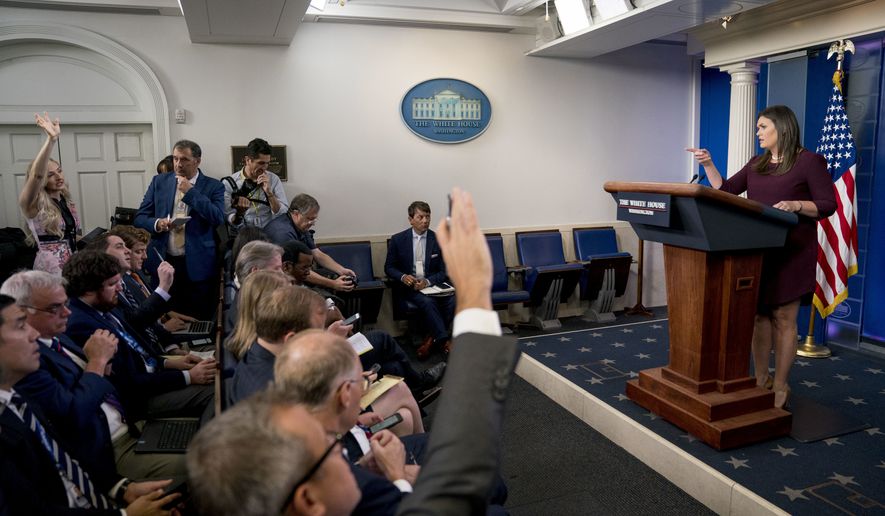OPINION:
The gathering of the pitchforks on behalf of the ladies and gentlemen of the press is really about sticking it to Donald Trump. Sometimes, often in fact, the press, like the president, deserves a poke with one of those pitchforks. The president of the United States calls us, with his usual excess of noisy exaggeration, “the enemy of the people.”
He calls what we produce “fake news,” and this hurts the feelings of many folk in the nation’s newsrooms. Some of the news is faked, but most of it is not. Many readers and viewers think the reputation of the American press is indeed abysmal, and Donald Trump, smarting from pinpricks inflicted by the press, naturally took up the cudgel conveniently at hand. Now some newspapers have banded together to assert their “collective independence.”
Today is the day that the Boston Globe has suggested newspapers around the country publish similar editorials to say that we are not the enemy of the people. In an expression of solidarity with our colleagues, here’s ours. We expand on the idea of Marjorie Pritchard, the deputy editor of the Globe editorial page, and suggest that the press spend part of the day reflecting on our sins, as well as those of the president.
“We are not the enemy of the people,” Miss Pritchard says, and she’s right. The term dates from the time of Shakespeare’s quill, and what we are collectively, here and now, is accurately called “the enemy of Donald Trump.”
What set off the latest Trump-press contretemps was a speech the president made in Pennsylvania, where he cried “Fake! Fake! and identified reporters and pundits the enemy of the people, and this so wounded Jim Acosta of CNN News that he all but collapsed in tears in an exchange with Sarah Huckabee Sanders in the White House press room. “We all get put through the wringer,” he said in a pitiful voice that broke hearts from Chevy Chase to Bethesda. “We all get put in the meat grinder in this town.” Wringer or meat grinder, being there was not a good place to be.
There was more. “For the sake of this room, the people who are in this room, this democracy, this country, all the people around the world are watching what you’re saying, Sarah, and the White House for the United States of America, the president of the United States should not refer to us as the enemy of the people.”
This was sob-sister stuff of an earlier day, before the press was the media, and newspapermen (including women) reveled in the knowledge that their publishers bought ink by the barrel and it never occurred to anyone to seek an apology for sharp words from a president, a governor, or an alderman. It was all a part of the game, and newspapers and presidents took a certain pride in giving as good as they got.
The press, or “the media,” as it now includes television, an entertainment medium not given to sober examination of events, has lost much of its reputation as a tribune of the people. A recent Gallup/Knight Foundation poll found that 62 percent of U.S. adults believe the news they get from traditional sources — newspapers, radio and television — is biased. Nearly half — 44 percent — think the information is inaccurate, and 39 percent even conclude that it’s misinformation cooked for a gullible audience. Social media fared even worse: Eighty percent of respondents reckon the material that flashes across their electronic devices is sometimes dodgy. Fake news is a reality, and has been since long before the Trump era.
Americans are by nature suspicious of conformity of thought. When nearly every flick of the TV remote and click of the computer mouse brings up an avalanche of anti-Trump news, it sure looks like groupthink. Pundits of the small screen cried on camera when Hillary Clinton went down on Election Night in 2016. The speculation that “Trump colluded with Russia” travels relentlessly in a closed loop, with press and television heavyweights vying to play “can you top this?” with the latest gossip and manufactured rumor.
The rallying cry for a united editorial-page assault on President Trump is “courage in numbers.” The press has a responsibility to identify every president’s misdeeds, and pay no attention to slings, arrows, and insults aimed its way. Setting out to take down a president by any means necessary is not the role of a responsible press. When newspapers return to their fundamental role, the public reputation of the press will recover. The sooner the better.




Please read our comment policy before commenting.